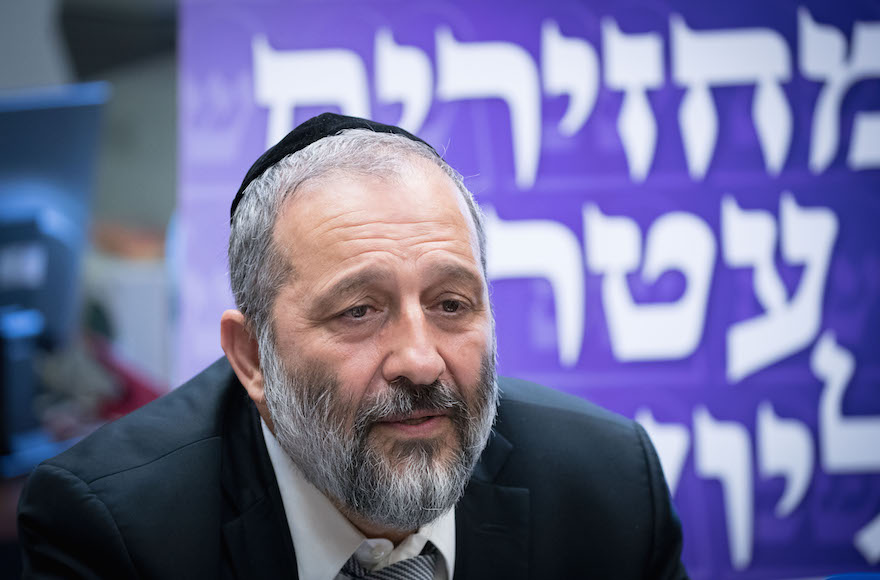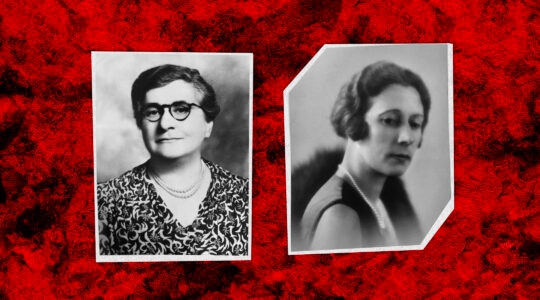JERUSALEM (JTA) — The head of the Sephardic Orthodox Shas party called members of the Religious Zionist movement “borderline Reform,” an insult among his haredi Orthodox constituents.
“Even the ‘knit kippot’ today, as some know even in very large communities, mainly in the center of the country, they’re already borderline Reform,” Aryeh Deri said earlier this month at a conference of a haredi Orthodox rabbinic organization, Benoam. The remarks were captured on video and broadcast Monday on Israel’s Channel 2.
“Knit kippot” refers to the crocheted kippahs worn by the more modern Orthodox community.
“It’s true, there are more kippot” in these communities than in American Reform synagogues, Deri went on. “It looks different, it’s more Israeli. But it’s still borderline Reform.”
Members of the Religious Zionist community, who tend to represent a less insular form of Orthodoxy than haredim, have been critical of the haredi Chief Rabbinate’s strict control of marriage and conversion issues in Israel. Modern Orthodox Jews in Israel are less likely to support yeshiva exemptions from army service and expensive subsidies for large families.
Deri also attacked Tzohar, a rabbinical group that has sought to make the Chief Rabbinate more user friendly and which has opposed a more stringent conversion law proposed by Shas.
“Together and in collaboration with the Reform, because they know their intention is to destroy [the Chief Rabbinate], they benefited from the baseness of others who were slandering the rabbinate and searching for faults in it,” Deri said. “They [do] everything for free, welcoming, lenient and all that, but we all know the truth.”
Deri defended his remarks in an essay for the Israeli news site Arutz Sheva.
“I said that those communities that pretend to present themselves as religious are turning to liberal areas which, in many cases, clash head-on with Halakha and our tradition,” he wrote, using the Hebrew word for Jewish law. “I said these things out of deep concern for the preservation of Jewish tradition.”
JTA has documented Jewish history in real-time for over a century. Keep our journalism strong by joining us in supporting independent, award-winning reporting.






